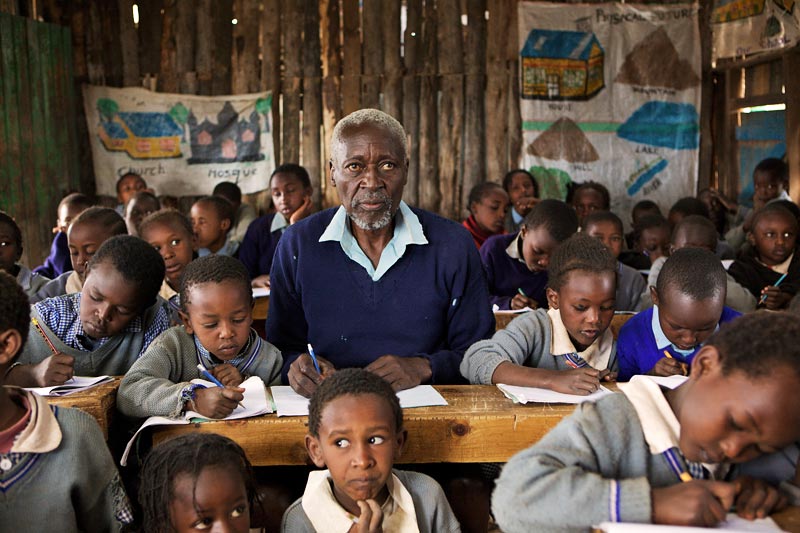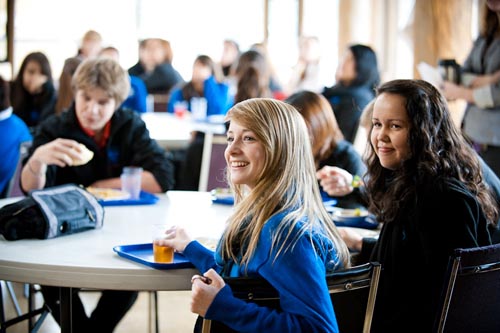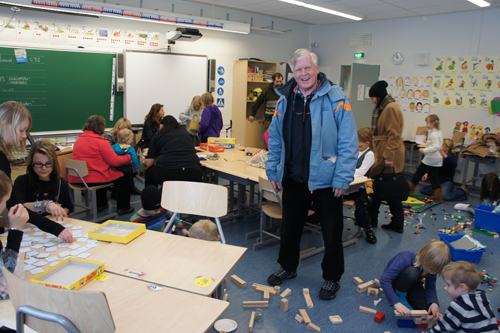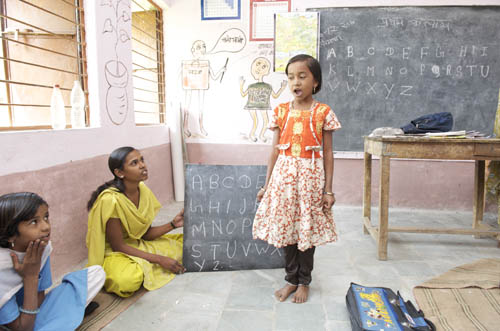“We have to learn from our past because we must not forget and because we must be better.”
So speaks the powerful voice of 84-year-old Kenyan, Kimani N’gan’ga Maruge, describing his unrelenting determination to get an education in a deeply moving new film by director Justin Chadwick (The Other Boleyn Girl) called The First Grader (U.S. release date: May 13, 2011). The film, a triumph of education, is based on the true life story of Maruge a poor, illiterate African man, striving to overcome his past but seeing his way forward very clearly when he is given the chance to have a free primary school education. Shot entirely on location in Kenya, the film stars Oliver Litondo in his first acting role as Maruge, and Actress Naomie Harris as the dedicated head teacher, Jane Obinchu, who supports Maruge’s quest for knowledge. During pre-production interviews with Maruge, Justin Chadwick explains to me: “The importance of knowledge, the chance to learn, was everything to him. Maruge told me, “The power is in the pen. This is our way out of Poverty.” Up to the day Maruge died, he asked for a teacher to come to his hospice so that he could continue his all important process of learning. He valued education that much. It was a humbling experience,” adds Chadwick.
We should all be humbled by Maruge’s example. Learning has a transformative power that some of us in the highly developed nations of this world often take for granted. Like Chadwick and The First Grader cast and crew, I spent many of my formative years in underdeveloped countries, and more recently went back to work with children in classrooms in Africa. I know children who live in extreme poverty, who will wake up early in the morning, do an hour’s work for their family, and then walk 5 or 6 miles to get to a classroom where a teacher can give them knowledge; a classroom where important resources such as books are both extremely scarce and highly cherished, and where any obstacle seems insignificant when you have the hunger to learn.
Education matters today more than ever to countries who are at the bottom of the educational hierarchy as well as to those who have highly developed educational systems. And just as Maruge believed that his personal quest to read and write was, in a broader context, his country’s way out of poverty, American educators and policy makers are trying to figure out how we, as a highly developed nation, can improve our education systems so that America can stay at the top in a rapidly changing world. I decided to pan the camera a little further back and take a look at that rapidly changing world and at what other countries are doing in terms of their quests for educational excellence. What I discovered is troubling.
President Obama has stated that education matters today more than ever if America is to win the future. However, the competition from those racing to the top is intensifying. For those who follow test scores, many countries are already doing much better than the United States in Reading, Math, and Science in significant international assessment tests such as PISA (Program for International Student Assessment). Over the past couple of months, with the intention of raising the awareness of policy makers, the media, and the public of the global facts, I have interviewed some of the most prominent thought leaders in education around the world to explore the big picture educational questions that all nations face. These include what kind of educational system will enable a country to have the human skills to compete globally in the 21st century? Will that educational system be able to develop the diverse intellectual and artistic capabilities of students as well as take into account all the important factors that impact a society’s quality of life? Will that system enable its citizens to achieve personal fulfillment as well as to further the accomplishment of a society’s goals? We look for the answers to these questions, for the solutions other nations have decided to embrace, and for the results they are having, in a series of weekly articles called The Global Search for Education.
The views and information shared among different nations is illuminating, but it also reveals that while others are putting educational results on an ascending path, we in the U.S. continue to flounder. Please join me and my distinguished guests, globally renowned for their educational leadership, including Sir Michael Barber (UK), Dr. Leon Botstein (US), Madhav Chavan (India), Professor Michael Fullan (Canada), Professor Howard Gardner (US), Professor Yvonne Hellman (The Netherlands), Professor Kristin Helstad (Norway), Professor Rose Hipkins (New Zealand), Professor Cornelia Hoogland (Canada), Mme. Chantal Kaufmann (Belgium), Professor Dominique Lafontaine (Belgium), Professor Hugh Lauder (UK), Professor Ben Levin (Canada), Professor Barry McGaw (Australia), Sridhar Rajagopalan (India), Sir Ken Robinson (UK), Professor Pasi Sahlberg (Finland), Andreas Schleicher (PISA, OECD), Dr. David Shaffer (US), Chancellor Stephen Spahn (US), Yves Theze (Lycee Francais US), Professor Charles Ungerleider (Canada), Professor Tony Wagner (US), Professor Dylan Wiliam (UK), Professor Theo Wubbels (The Netherlands), Professor Michael Young (UK), Professor Minxuan Zhang (China), among others, as they share ideas and seek to find solutions inThe Global Search for Education, a series of interviews that will be published beginning next week.
One of the lessons that Maruge teaches us in the early part of The First Grader is that at any age it is possible to make a change and realize our dreams. But first, the people who want to make that change must be like Maruge and the young classmates in his first grade classroom. They must have the spirit, the thirst, the hunger, the desire, and the will to learn.


In The Global Search for Education, join C.M. Rubin and globally renowned thought leaders including Sir Michael Barber (UK), Dr. Leon Botstein (US), Dr. Linda Darling-Hammond (US), Dr. Madhav Chavan (India), Professor Michael Fullan (Canada), Professor Howard Gardner (US), Professor Yvonne Hellman (The Netherlands), Professor Kristin Helstad (Norway), Professor Rose Hipkins (New Zealand), Professor Cornelia Hoogland (Canada), Mme. Chantal Kaufmann (Belgium), Professor Dominique Lafontaine (Belgium), Professor Hugh Lauder (UK), Professor Ben Levin (Canada), Professor Barry McGaw (Australia), Sridhar Rajagopalan (India), Sir Ken Robinson (UK), Professor Pasi Sahlberg (Finland), Andreas Schleicher (PISA, OECD), Dr. David Shaffer (US), Chancellor Stephen Spahn (US), Yves Theze (Lycee Francais US), Professor Charles Ungerleider (Canada), Professor Tony Wagner (US), Professor Dylan Wiliam (UK), Professor Theo Wubbels (The Netherlands), and Professor Michael Young (UK) as they explore the big picture education questions that all nations face today. The Global Search for Education Community Page
C. M. Rubin is the author of two widely read online series for which she received a 2011 Upton Sinclair award, “The Global Search for Education” and “How Will We Read?” She is also the author of three bestselling books, including The Real Alice in Wonderland.
Follow C. M. Rubin on Twitter: www.twitter.com/@cmrubinworld





Recent Comments